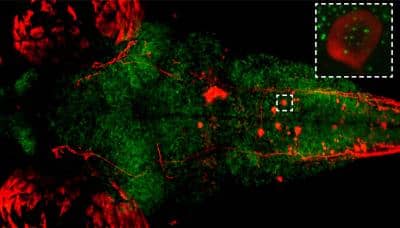The pineal gland, responsible for the production of melatonin, which regulates sleep/wake cycles, may synchronize the activity of more than 600 genes that affect numerous bodily functions such as inflammation and immunity. Researchers at the National Institutes of Health (NIH) and other institutions used a gene chip, a device that scans the activity of thousands of genes at a time, to find the correlation between the 24-hour sleep and wake cycle and these hundreds of genes.
"The results of this study indicate that the pineal gland may be involved in a far greater range of physiological functions than we thought," says Duane Alexander, MD, director of NIH’s Eunice Kennedy Shriver National Institute of Child Health and Human Development, in a release from the NIH. "An understanding of how the pineal gland interacts with the genes that the researchers identified could provide insight into a broad range of disorders and conditions."
The activity of the 604 genes changed from 2- to 100-fold within a 24-hour cycle. Roughly 70% of the genes had an increase in activity at night, while the remaining 30% increased activity during the day.
Some of the body processes affected by the activity of the genes in the study include:
• Inflammation
• Immune response
• Cell adhesion
• Cell cycle
• Calcium metabolism
The Journal of Biological Chemistry published the results of the study.




